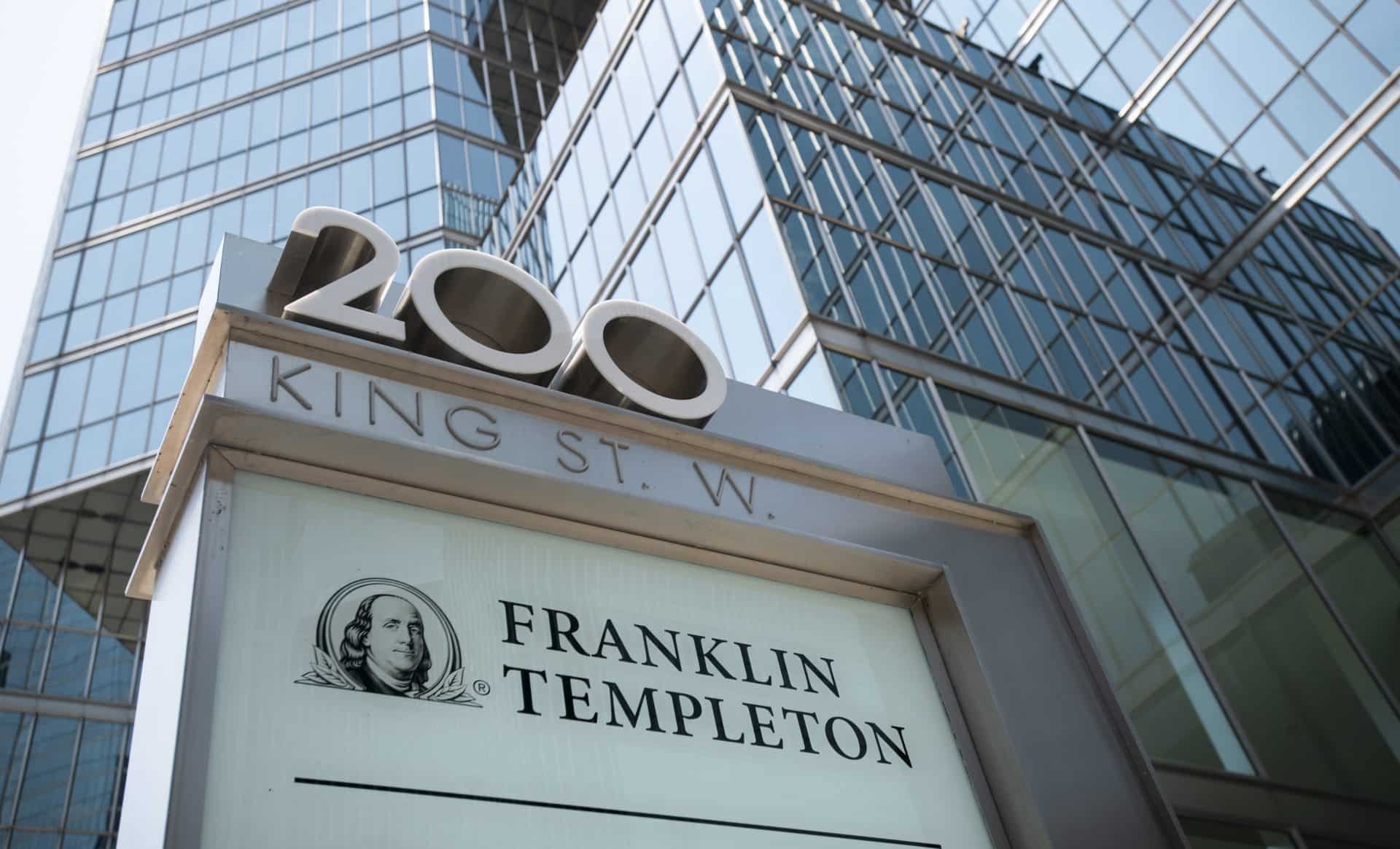Franklin Templeton Warns of Serious Risks in Institutional Bitcoin Treasury Strategies
03.07.2025 18:12 2 min. read Kosta Gushterov
As institutional adoption of Bitcoin accelerates, U.S. asset management giant Franklin Templeton has issued a cautionary note on the growing trend of crypto-based treasury strategies.
In a recent report cited by The Block, the firm’s analysts highlighted both the momentum and potential dangers of public companies adopting Bitcoin and other digital assets as part of their corporate balance sheets.
The model—popularized by Michael Saylor’s firm Strategy—has inspired a wave of public firms to follow suit. In addition to Strategy, companies like Metaplanet and Twenty One have adopted BTC-focused treasury allocations. Others, including SharpLink, Upexi, and Sol Strategies, are pursuing similar approaches using Solana (SOL) or Ethereum (ETH).
Franklin Templeton Flags Capital Risk If Market-NAV Ratio Slips
According to Franklin Templeton’s analysts, the future of institutional crypto treasuries remains uncertain and hinges on a number of financial dynamics—particularly the market-to-NAV (net asset value) ratio. If this ratio dips below 1, new stock issuances could become dilutive, making it difficult for companies to raise capital without negatively affecting existing shareholders.
The report warns that in such cases, capital formation may stall, putting pressure on firms to unwind their crypto positions. “If cryptocurrency prices fall, companies may be forced to sell assets to protect stock valuations, leading to further price declines,” the analysts wrote.
This risk could create a negative feedback loop, with declining crypto prices prompting asset liquidations that further damage both market prices and investor confidence.
Caution Amid Growing Adoption
While Franklin Templeton acknowledges that institutional adoption of Bitcoin and crypto treasury models will likely expand, the firm stresses that such strategies may increase volatility for both equity investors and crypto markets. In a prolonged bear market or steep price correction, these companies could become high-risk plays with amplified downside exposure.
-
1
SEC Approves Trump Media’s $2.3B Bitcoin Treasury Move
15.06.2025 7:00 1 min. read -
2
Quantum Advances Put Bitcoin’s Security to the Test
16.06.2025 13:00 2 min. read -
3
Why Rising Energy Prices Could Supercharge Bitcoin, According to Expert
18.06.2025 16:00 1 min. read -
4
Michael Saylor Signals Fresh BTC Buy as Strategy Rides Out Geopolitical Turbulence
16.06.2025 8:00 1 min. read -
5
Corporate Bitcoin Adoption Still in Early Days, Says Bitwise CIO
13.06.2025 10:00 1 min. read
Arthur Hayes Warns of Bitcoin Pullback to $90,000: Here is Why
BitMEX co-founder Arthur Hayes has issued a cautious outlook for Bitcoin and the broader crypto market, predicting a possible short-term downturn as the U.S. government shifts its liquidity strategy.
Bitcoin Whales Accumulate as Long-Term Holders Hit All-Time High
Bitcoin’s bullish undercurrent continues to strengthen as on-chain data and derivatives market behavior reveal aggressive accumulation from long-term holders and whales.
Bitcoin Climbs to $109,500: Why the Price is Up?
Bitcoin rose 1.78% over the past 24 hours to reach $109,500 at the time of writing, driven by surging institutional inflows into spot ETFs, easing global trade tensions, and strengthening technical momentum.
BlackRock’s Bitcoin ETF Now Out-Earning Its $624B S&P 500 Fund
BlackRock’s spot Bitcoin exchange-traded fund (ETF), known by its ticker IBIT, has surpassed the firm’s flagship S&P 500 ETF in annual revenue, according to a new report from Bloomberg.
-
1
SEC Approves Trump Media’s $2.3B Bitcoin Treasury Move
15.06.2025 7:00 1 min. read -
2
Quantum Advances Put Bitcoin’s Security to the Test
16.06.2025 13:00 2 min. read -
3
Why Rising Energy Prices Could Supercharge Bitcoin, According to Expert
18.06.2025 16:00 1 min. read -
4
Michael Saylor Signals Fresh BTC Buy as Strategy Rides Out Geopolitical Turbulence
16.06.2025 8:00 1 min. read -
5
Corporate Bitcoin Adoption Still in Early Days, Says Bitwise CIO
13.06.2025 10:00 1 min. read


